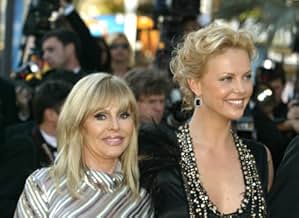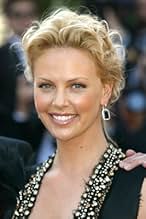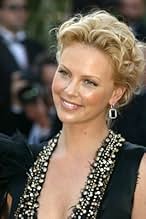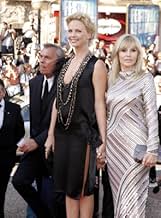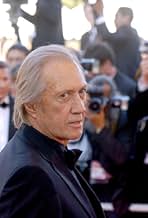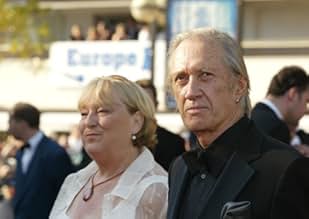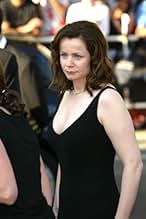IMDb रेटिंग
6.9/10
16 हज़ार
आपकी रेटिंग
अपनी भाषा में प्लॉट जोड़ेंThe feature adaptation of Roger Lewis' book about the actor best remembered as Inspector Clouseau in the Pink Panther movies.The feature adaptation of Roger Lewis' book about the actor best remembered as Inspector Clouseau in the Pink Panther movies.The feature adaptation of Roger Lewis' book about the actor best remembered as Inspector Clouseau in the Pink Panther movies.
- निर्देशक
- लेखक
- स्टार
- 9 प्राइमटाइम एमी जीते
- 31 जीत और कुल 35 नामांकन
Edward Tudor-Pole
- Spike Milligan
- (as Edward Tudor Pole)
फ़ीचर्ड समीक्षाएं
Biopics are a devilish thing. Is as if the subject himself boycotted the operation from beyond the grave. The ultimate breach of privacy, isn't it? One feels like a voyeur, compelled and revolted at the same time. Goeffrey Rush's brilliant portrayal makes things even worse, I mean better, no I meant worse. A life of massive ups and downs for public consumption. Peter Sellers with a Cary Grant complex and a talent bigger than himself told in bits and pieces. To the ones who know about Sellers is a rather frustrating experience. Dr.Strangelove yes but not Lolita? The relationship with Blake Edwards deserves a movie of its own. The first massive heart attack was during Billy Wilder's "Kiss Me Stupid" but there is no mention of that. I know that to compress such a life without a structure within a two hour film it's an impossible task so what we're left with is a courageous attempt at tell us the sickly existence of one the greatest that ever was, a superlative performance by Goeffrey Rush, an astonishing Charlize Theron as Britt Eckland and very little else. I suppose that should be enough. Yes, it should, shouldn't it?
Stephen Hopkins' "The Life and Death of Peter Sellers" is a monumental film that undertook the difficult task of understanding the late Peter Sellers. This unique actor, with such a complicated personality and who lived such a turbulent life, comes alive in this HBO production based on the book by Roger Lewis, with an adaptation by Christopher Markus.
Peter Sellers covered quite a lot of ground during his life. He was one of the best actors working in the England of the fifties, working in all those charming comedies that made him a star in his native land, but alas, was not well known in America because he had not yet been hired by Hollywood until his "discovery" by director Blake Edwards, who offered him the part of Inspector Clouseau after Peter Ustinov had turned down the role.
Prior to his worldwide recognition, Mr. Sellers had to work a lot in order to make ends meet. Life with his first wife Anne came to an abrupt end, when he discovered she had fallen for the interior decorator the couple had hired. Then, there is the fascinating episode with Sophia Loren, in which Mr. Sellers, in his mind, begins to think he is in love with her, only to be rebuked by Ms. Loren, a woman who was happily married to Carlo Ponti, and had no desire to become the second Mrs. Sellers.
The third woman in Mr. Sellers life is the beautiful, but much younger, Britt Ekland. From the start, one can figure this union was not to last. The age difference and the different cultures indicate these two were completely mismatched, as we get to watch in painful detail how the marriage disintegrates.
Mr. Hopkins makes his star, Geoffrey Rush, assume a lot of roles in addition of the main one, Peter Sellers. Geoffrey Rush shows his versatility in playing them with great style. His biggest achievement seems to be how he captures the essence of Peter Sellers, the man, and expose him to us in all his complexity.
The acting is superb. Emily Watson and Charlize Theron are seen as Anne and Britt, two women that left their mark in the life of Mr. Sellers. Both are excellent in the film. Miriam Margoyles plays Peg Sellers. John Lighgow is Blake Edwards, the man who elevated the actor to an international acclaim.
The film is a documentary, as well as a biopic about this man who gave a lot of joy to movie fans through his films. Geoffrey Rush has to be thanked for bringing him to life, as well as the director, Stephen Hopkins for giving us an understanding on what it was to be Peter Sellers.
Peter Sellers covered quite a lot of ground during his life. He was one of the best actors working in the England of the fifties, working in all those charming comedies that made him a star in his native land, but alas, was not well known in America because he had not yet been hired by Hollywood until his "discovery" by director Blake Edwards, who offered him the part of Inspector Clouseau after Peter Ustinov had turned down the role.
Prior to his worldwide recognition, Mr. Sellers had to work a lot in order to make ends meet. Life with his first wife Anne came to an abrupt end, when he discovered she had fallen for the interior decorator the couple had hired. Then, there is the fascinating episode with Sophia Loren, in which Mr. Sellers, in his mind, begins to think he is in love with her, only to be rebuked by Ms. Loren, a woman who was happily married to Carlo Ponti, and had no desire to become the second Mrs. Sellers.
The third woman in Mr. Sellers life is the beautiful, but much younger, Britt Ekland. From the start, one can figure this union was not to last. The age difference and the different cultures indicate these two were completely mismatched, as we get to watch in painful detail how the marriage disintegrates.
Mr. Hopkins makes his star, Geoffrey Rush, assume a lot of roles in addition of the main one, Peter Sellers. Geoffrey Rush shows his versatility in playing them with great style. His biggest achievement seems to be how he captures the essence of Peter Sellers, the man, and expose him to us in all his complexity.
The acting is superb. Emily Watson and Charlize Theron are seen as Anne and Britt, two women that left their mark in the life of Mr. Sellers. Both are excellent in the film. Miriam Margoyles plays Peg Sellers. John Lighgow is Blake Edwards, the man who elevated the actor to an international acclaim.
The film is a documentary, as well as a biopic about this man who gave a lot of joy to movie fans through his films. Geoffrey Rush has to be thanked for bringing him to life, as well as the director, Stephen Hopkins for giving us an understanding on what it was to be Peter Sellers.
It might be impossible to capture every aspect of a man's life in a two-hour film (A & E Biography frequently fails at this in the one-hour format with the bigger stars) while giving everything its proper weight. Peter Sellers' life is of such extraordinary dimensions that "The Life and Death of Peter Sellers" even fails at being a scrapbook. This is not necessarily the film's fault; the movie is mostly well-cast (only John Lithgow as Blake Edwards didn't seem quite right) and beautiful to look at, from the opening credits on.
The movie serves mostly as a sampler of Sellers' oddball behavior. Incidents are selected from his life (or slightly fabricated) to stand for the whole; one slap across Britt Ekland's face is meant to represent a lifetime of spousal abuse, but those unfamiliar with Sellers personal life will assume that he was merely temperamental off-camera. In fact, it doesn't even come close to the truth: Anne Sellers reported that Peter once fought her for 14 hours straight (she took a nap in between) and Britt says Peter pointed a loaded gun at her in Rome, only capitulating after she told him 'if you shoot me, you'll ruin your own career'. His mistreatment of his family is grossly underweighted compared to such trivial items as Sellers not quite getting the Texas accent required for the bomber role in Dr. Strangelove, then faking a broken leg to Kubrick so he wouldn't be able to climb the ladder to the elevated cockpit on the movie set and avoid having to admit his failure with the voice. Other things are not clearly explained; for instance, that the "clairvoyant" Maurice Woodruff was in the employ of the movie studios to get Sellers to do the pictures they wanted him to do, or the fantasy sequence after his seven consecutive heart attacks in LA, which relates to Sellers insisting that he had an out-of-body experience during he time his heart stopped. The asides to the camera by the Kubrick and Bill Sellers characters, and Sellers (in funny voices) indicate the director straining for depth; perhaps a documentary on Sellers' life would have been better.
On the plus side, Geoffrey Rush is nothing short of superb as Sellers. Everything about Sellers seems exactly right, including the voice, which is no small feat, since I don't think Sellers is all that doable. The voice certainly wouldn't be recognized as Sellers if done out of context, say, as a stage impersonation, yet it works, even though I can't really recall what Sellers' actual voice did sound like. (It was this lack of personality that made him such a great instrument for creating characters) Charlize Theron is also a dead ringer for Britt, though she's not given much to do.
This movie is mostly for Peter Sellers enthusiasts, like myself, who can pick out the obscure trivia (like the Texas accent sequence), explain it to other people and feel superior. The movie isn't bad, really; its extremely well-acted and well-crafted, but it fails miserably at explaining the man. Why was he the way he was? How does one reconcile his genius with his brutality and selfishness. Sellers is of such depth and magnitude that a two-hour movie just doesn't cut it. For a true picture of the man, I would recommend the Roger Lewis book on which the movie is "based", Ed Sikov's more sympathetic biography on Sellers, and Michael Sellers' memoir "P.S. I Love You". Sellers once described himself as being an "empty vessel", a body through which one of his great characters came to life. I feel the same way about this movie.
The movie serves mostly as a sampler of Sellers' oddball behavior. Incidents are selected from his life (or slightly fabricated) to stand for the whole; one slap across Britt Ekland's face is meant to represent a lifetime of spousal abuse, but those unfamiliar with Sellers personal life will assume that he was merely temperamental off-camera. In fact, it doesn't even come close to the truth: Anne Sellers reported that Peter once fought her for 14 hours straight (she took a nap in between) and Britt says Peter pointed a loaded gun at her in Rome, only capitulating after she told him 'if you shoot me, you'll ruin your own career'. His mistreatment of his family is grossly underweighted compared to such trivial items as Sellers not quite getting the Texas accent required for the bomber role in Dr. Strangelove, then faking a broken leg to Kubrick so he wouldn't be able to climb the ladder to the elevated cockpit on the movie set and avoid having to admit his failure with the voice. Other things are not clearly explained; for instance, that the "clairvoyant" Maurice Woodruff was in the employ of the movie studios to get Sellers to do the pictures they wanted him to do, or the fantasy sequence after his seven consecutive heart attacks in LA, which relates to Sellers insisting that he had an out-of-body experience during he time his heart stopped. The asides to the camera by the Kubrick and Bill Sellers characters, and Sellers (in funny voices) indicate the director straining for depth; perhaps a documentary on Sellers' life would have been better.
On the plus side, Geoffrey Rush is nothing short of superb as Sellers. Everything about Sellers seems exactly right, including the voice, which is no small feat, since I don't think Sellers is all that doable. The voice certainly wouldn't be recognized as Sellers if done out of context, say, as a stage impersonation, yet it works, even though I can't really recall what Sellers' actual voice did sound like. (It was this lack of personality that made him such a great instrument for creating characters) Charlize Theron is also a dead ringer for Britt, though she's not given much to do.
This movie is mostly for Peter Sellers enthusiasts, like myself, who can pick out the obscure trivia (like the Texas accent sequence), explain it to other people and feel superior. The movie isn't bad, really; its extremely well-acted and well-crafted, but it fails miserably at explaining the man. Why was he the way he was? How does one reconcile his genius with his brutality and selfishness. Sellers is of such depth and magnitude that a two-hour movie just doesn't cut it. For a true picture of the man, I would recommend the Roger Lewis book on which the movie is "based", Ed Sikov's more sympathetic biography on Sellers, and Michael Sellers' memoir "P.S. I Love You". Sellers once described himself as being an "empty vessel", a body through which one of his great characters came to life. I feel the same way about this movie.
For anyone interested in Peter Sellers life and work, this film is certainly worth watching, if for nothing more than the incredible re-creations of scenes from Sellers' films. Geoffrey Rush is transformed into a nearly dead-ringer for Sellers, through the magic of make up and prosthetics. But as talented as he may be, no one can recreate the subtleties of the master, especially the use of his eyes
Sellers' eyes were by far the funniest aspect of his physicality: narrowing, widening, always moving, punctuating his actions and illuminating the emotions within, even as part of the most farcical of performances.
Such a rich and varied life would lend itself to a miniseries but of course it would be a copout to suggest that at least a glimmer into the life of a man couldn't be done successfully within two hours. What this movie drove home for me was how terribly short the human lifespan really is, and how little time we have to truly discover ourselves and come to terms with our own frailties. I felt that the basis of Sellers unhappiness, which manifested itself in inexcusable cruelty to his family, friends and co-workers, was a direct result of his childhood, which was never really addressed in this film. It was, in his own words to Michael Parkinson, not a very happy time in his life. Growing up in the theater circuit, being in the company of boozy and abusive 'theatricals', and being raised by a domineering mother and what I gather was a rather passive and emotionally unavailable father set the stage for a man who obviously felt deprived of the things that give us self-esteem and confidence. No one in his adult life could give him the things he should've received from his parents as a child, and he took out that frustration on those closest to him.
Also interesting were the glimpses of his fellow Goons (Spike Milligan and Harry Secombe) at various chapters in his life-in the church at his mother's funeral, in the crowd at the premiere of 'The Pink Panther'. They represented what he considered the happiest time of his life and they were a constant presence, flitting in an out of his life at key moments in the film, like the ghosts of Christmas Past.
Interesting also in how one decision, in this case his delusional infatuation with Sophia Loren, set in motion a series of dovetailing mistakes in his life, which took him further and further away from a relatively healthy existence. He had twenty years more to live and it turned out to be not enough time to turn things around.
Such a rich and varied life would lend itself to a miniseries but of course it would be a copout to suggest that at least a glimmer into the life of a man couldn't be done successfully within two hours. What this movie drove home for me was how terribly short the human lifespan really is, and how little time we have to truly discover ourselves and come to terms with our own frailties. I felt that the basis of Sellers unhappiness, which manifested itself in inexcusable cruelty to his family, friends and co-workers, was a direct result of his childhood, which was never really addressed in this film. It was, in his own words to Michael Parkinson, not a very happy time in his life. Growing up in the theater circuit, being in the company of boozy and abusive 'theatricals', and being raised by a domineering mother and what I gather was a rather passive and emotionally unavailable father set the stage for a man who obviously felt deprived of the things that give us self-esteem and confidence. No one in his adult life could give him the things he should've received from his parents as a child, and he took out that frustration on those closest to him.
Also interesting were the glimpses of his fellow Goons (Spike Milligan and Harry Secombe) at various chapters in his life-in the church at his mother's funeral, in the crowd at the premiere of 'The Pink Panther'. They represented what he considered the happiest time of his life and they were a constant presence, flitting in an out of his life at key moments in the film, like the ghosts of Christmas Past.
Interesting also in how one decision, in this case his delusional infatuation with Sophia Loren, set in motion a series of dovetailing mistakes in his life, which took him further and further away from a relatively healthy existence. He had twenty years more to live and it turned out to be not enough time to turn things around.
Let there be no doubt that Peter Sellers would be an enormously difficult part to play. He has to be one of the few actors in film history who is more complex than the characters he played. (unless one considers actors such as Paul Walker... let me rephrase that, one of the few TALENTED actors) And it would be hard to imagine the man who is still infamously remembered as Inspector Clouseau from the Pink Panther series being played in as flawless a manor as by Geoffrey Rush here. He wasn't the most obvious choice to play Peter Sellers, but he proved to be the wisest one. The man deserves countless praises, not only for playing Sellers himself to perfection, but also for flawlessly re-creating pretty much every film and radio role Sellers ever played, from Dr. Strangelove to Chance the gardener to Clouseau himself. (beginning in a hilarious sequence on an airplane when Sellers hassles an airline stewardess in Clouseau character) But it doesn't stop there - all throughout his life (or at least so shown here) Sellers struggled with the notion that despite the rampant personalities of his screen personas, Peter the man never really had much of a personality himself. To show this, Sellers reenacts sequences of his real life with himself playing different characters. It is in these delusional sequences that Rush shows his true mastery - he doesn't give us "Geoffrey Rush as Peter Sellers' mother", he gives us "Geoffrey Rush as Peter Sellers as Peter Sellers' mother". Words can't describe the amount of recognition Geoffrey Rush deserves, and a solitary Golden Globe simply doesn't do him justice.
Despite the fact that virtually the whole show centers around Rush and his masterful performance, he is backed up by a strong supporting cast and crew. Director Stephen Hopkins was also an odd choice for the project, given his past credentials ("Lost in Space"? "Predator 2"?)but he proves to have the cheeky sense of humour the film needed to be taken seriously, starting off with a surreal 60's style animation sequence with Sellers showing clips from his own life. And it's nice to see some higher profile actors taking the back seat here, such as Charlize Theron, delightfully ditzy and yet not quite a parody as Sellers' airheaded second wife Britt Eckland. Emily Watson brings class and understated strength to her role as Ann, Sellers' first wife, and, as we are led to believe, the only woman he ever truly loved. (despite the fact he left her and their children to pursue a relationship with Sophia Loren which never happened) Stanley Tucci plays Stanley Kubrick in a brief yet important role during the filming of Dr. Strangelove - his eyes showed what his words could not: how irresponsible and hazardous to he production he perceived Sellers to be. Miriam Margoyles, better known as Professor Sprout in the Harry Potter series is formidable as Peter's domineering, manipulative mother, portrayed as the main reason for Sellers' fractured state of reality. And John Lithgow is an excellent Blake Edwards, blending his eternal optimism and energy with a sense of self pride, which he is forced to swallow, asking Sellers to return for numerous Pink Panther sequels. Lithgow, with his obnoxious laugh, is a constant high point throughout the film.
Yet, after the viewing is finished, the watcher feels strangely empty. Sure it looked classy, and it felt classy to watch, so why shouldn't it be classified as a great movie? Perhaps it's because 'The Life and Death of Peter Sellers' feels more like a series of snapshots, and not like a proper biography. We are presented with WHAT Sellers did in his lifetime, but never really shown WHY. There's an irritating lack of depth, which the viewer fails to notice during the movie, so captivated are we with Rush's wonderful acting. But when we reflect on the film afterwards, we realize that we still don't really know who Peter Sellers is. We know what he did, but not why he did it. This may be an intentional decision on Hopkins' part, because, as we are led to believe, Sellers didn't really understand himself that well. So no one really knew who Peter Sellers was... not even himself. And we should be content with that.
-8/10
Despite the fact that virtually the whole show centers around Rush and his masterful performance, he is backed up by a strong supporting cast and crew. Director Stephen Hopkins was also an odd choice for the project, given his past credentials ("Lost in Space"? "Predator 2"?)but he proves to have the cheeky sense of humour the film needed to be taken seriously, starting off with a surreal 60's style animation sequence with Sellers showing clips from his own life. And it's nice to see some higher profile actors taking the back seat here, such as Charlize Theron, delightfully ditzy and yet not quite a parody as Sellers' airheaded second wife Britt Eckland. Emily Watson brings class and understated strength to her role as Ann, Sellers' first wife, and, as we are led to believe, the only woman he ever truly loved. (despite the fact he left her and their children to pursue a relationship with Sophia Loren which never happened) Stanley Tucci plays Stanley Kubrick in a brief yet important role during the filming of Dr. Strangelove - his eyes showed what his words could not: how irresponsible and hazardous to he production he perceived Sellers to be. Miriam Margoyles, better known as Professor Sprout in the Harry Potter series is formidable as Peter's domineering, manipulative mother, portrayed as the main reason for Sellers' fractured state of reality. And John Lithgow is an excellent Blake Edwards, blending his eternal optimism and energy with a sense of self pride, which he is forced to swallow, asking Sellers to return for numerous Pink Panther sequels. Lithgow, with his obnoxious laugh, is a constant high point throughout the film.
Yet, after the viewing is finished, the watcher feels strangely empty. Sure it looked classy, and it felt classy to watch, so why shouldn't it be classified as a great movie? Perhaps it's because 'The Life and Death of Peter Sellers' feels more like a series of snapshots, and not like a proper biography. We are presented with WHAT Sellers did in his lifetime, but never really shown WHY. There's an irritating lack of depth, which the viewer fails to notice during the movie, so captivated are we with Rush's wonderful acting. But when we reflect on the film afterwards, we realize that we still don't really know who Peter Sellers is. We know what he did, but not why he did it. This may be an intentional decision on Hopkins' part, because, as we are led to believe, Sellers didn't really understand himself that well. So no one really knew who Peter Sellers was... not even himself. And we should be content with that.
-8/10
क्या आपको पता है
- ट्रिवियाPeter Sellers did not give a pony to his son Michael as shown in the film. He gave it to his younger daughter by Britt Ekland several years later. The change was made in order to compress events for dramatic purposes. According to the screenwriter, the horse disappeared after a couple of weeks, and when his daughter wanted to know where it was, he replied that he had given it to Princess Margaret.
- गूफ़A cinema marquee advertises Ghost in the Noonday Sun (1974) despite the fact that this film was shelved until after Sellers' death and never received a theatrical release. Similarly, The Blockhouse (1973) didn't have a U.K. theatrical release but is shown playing on a London marquee.
- भाव
[At Peter's wedding to the Swedish starlet Britt Ekland]
Peg Sellers: You've only known that bleedin' Nazi for 3 weeks.
Peter Sellers: Peg, I couldn't be happier.
Peg Sellers: Why are you making the same mistake all over again?
Peter Sellers: Because, my love, they won't let me marry you.
- क्रेज़ी क्रेडिटThe frame freezes and the end credits start. After some informations about the last part of life of Peter Sellers have scrolled up the screen, the credits stop and the camera suddenly pulls back, revealing Geoffrey Rush watching the end titles sitting in front of a monitor on a studio set. He turns toward the camera, waves, gets up, leaves the set and walks to a trailer. The camera tries to follow him inside, but he turns and says "You can't come in here". The door closes, and the camera zooms in on the sign with the name "Peter Sellers". The film again fades to black and we see the rest of the end credits.
- इसके अलावा अन्य वर्जनThe BBC broadcast a version with some scenes rearranged, some scenes shortened and a few other edits:
- The montage of Peter Sellers' earlier films is cut together with the scene where he moves into a big new house with Anne and the children. Also the song 'I Haven't Told Her, She Hasn't Told Me' sung by Peter is played instead of Frank Sinatra's 'Fly Me to the Moon'.
- The first Maurice Woodruff scene and the car showroom scene are moved ahead to after Peter's father's death scene, swapping places with the scene where he phones Harry Secombe asking if he wants to come over for a beer. The car showroom scene also replaces the Shirley Bassey song 'Big Spender' with incidental music composed for the film.
- The first Maurice Woodruff scene begins with a shot of Peter smoking a cigarette in the waiting room before cutting to a shot of Woodruff's book, which is where this scene begins in the original version.
- The Harry Secombe phone call scene is shortened, cutting out the bit where Peter tells his son to go to his room.
- A shot of Peter as Dr. Strangelove saying "Boom" is added after the Dr. Strangelove filming scenes.
- Peter and Britt Ekland's wedding reception scene is shortened slightly, the shots of the children on the carousel are cut out.
- The scene where Peter drives Britt to the hospital to give birth is shortened, cutting out footage of the car going past a church, pulling out in front of another car and Peter telling Britt to keep breathing.
- The very brief scene of Peter seeing a plastic surgeon followed by shots of him in a makeup chair and taking pills is cut out.
- The scene where Maurice Woodruff tries to get Peter to do another Pink Panther film is shortened, the bit where he channels Peter's mother and tells him to do the film is cut out. Also a different take is used when Maurice gets out the film script, instead of saying "Are you absolutely sure about that?", he says "Are you sure about that?".
- The scene of Peter in his trailer dressed as the old salty sea dog is moved back to in between the scenes of him agreeing to make The Pink Panther Strikes Again and the film's premiere, making it look as if this character is part of that film when actually he appears in Revenge of the Pink Panther. In the original version this scene takes place later on, after a shot of Peter picking up a Revenge of the Pink Panther script. Whereas this version changes this shot to show a Being There script.
- The scene of Peter in character as Blake Edwards is shortened. The line at the end of the scene "What did he do after me? The only thing he never gave up on" is cut out.
- The montage of Peter doing character preparation for Being There and burning his old movie stuff is arranged differently. The overlaid shots of him doing The Goon Show and playing Strangelove, Clouseau are removed, although a shot of him burning a photo of President Merkin Muffley and a shot of the Being There novel in his pocket are added.
- In the first shot of Blake Edwards waiting for Peter at the restaurant, instead of starting with a close up of the script for The Romance of the Pink Panther and cutting just before a waiter pours water into a glass, it starts with the water pouring into the glass, using a different part of this same take.
- At the ending, when after the closing text it zooms out to show Peter watching it on a monitor and getting up to go to his trailer after which the end credits roll, this version inserts after the text another shot of Peter standing in the snow, then the cast list rolls before the zoom out to Peter watching it on a monitor. Also in this version The Kinks' song 'A Well Respected Man' starts playing as Peter gets up to go to his trailer, in the original version incidental music is played here instead and 'A Well Respected Man' doesn't start playing until the credits roll.
- कनेक्शनFeatured in At the Movies: एपिसोड #1.9 (2004)
- साउंडट्रैकWhat's New Pussycat
Written by Burt Bacharach and Hal David
Performed by Tom Jones
Courtesy of The Decca Music Group Ltd.
Licensed by kind permission from the Universal Film & TV Licensing Division
टॉप पसंद
रेटिंग देने के लिए साइन-इन करें और वैयक्तिकृत सुझावों के लिए वॉचलिस्ट करें
- How long is The Life and Death of Peter Sellers?Alexa द्वारा संचालित
विवरण
- रिलीज़ की तारीख़
- कंट्री ऑफ़ ओरिजिन
- आधिकारिक साइटें
- भाषा
- इस रूप में भी जाना जाता है
- The Life and Death of Peter Sellers
- फ़िल्माने की जगहें
- 33 Portland Place, मार्लेबोन, लंदन, इंग्लैंड, यूनाइटेड किंगडम(Peter Sellers' London flat)
- उत्पादन कंपनियां
- IMDbPro पर और कंपनी क्रेडिट देखें
बॉक्स ऑफ़िस
- दुनिया भर में सकल
- $17,89,336
- चलने की अवधि2 घंटे 2 मिनट
- रंग
- ध्वनि मिश्रण
- पक्ष अनुपात
- 1.85 : 1
इस पेज में योगदान दें
किसी बदलाव का सुझाव दें या अनुपलब्ध कॉन्टेंट जोड़ें



